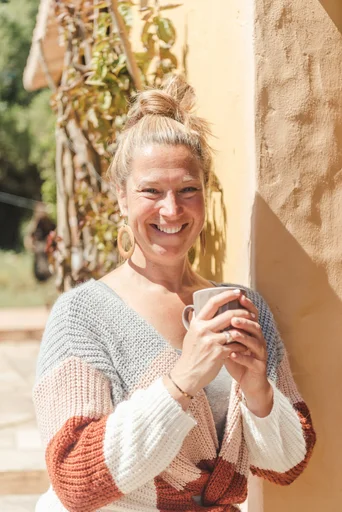15 Health Benefits of Yoga For Aging Adults

Introduction to Yoga and Its Growing Popularity Among Aging Adults
Yoga has gained immense popularity among aging adults in recent years, offering a multitude of physical and mental health benefits. But what exactly is yoga, and why are more seniors turning to this ancient practice?
What is Yoga?
Yoga is a holistic discipline that combines physical postures, breathing exercises, and meditation to promote overall well-being. It's not just about physical exercise; it's a comprehensive approach to harmonizing the body, mind, and spirit.
Why Aging Adults Are Turning to Yoga
For many seniors, the journey into yoga begins with a personal story of discovery. Whether it's overcoming physical limitations or seeking mental peace, aging adults are finding solace and vitality through yoga. The growing body of research supporting yoga's benefits for older individuals further fuels this trend. According to the 2016 Yoga in America Study, nearly 14 million Americans over the age of 50 practiced yoga that year, indicating a significant interest among aging adults.
The key findings from recent research indicate that yoga can significantly improve balance and mobility, cardiometabolic health, cognition, sleep quality, and overall quality of life for elderly adults. Moreover, studies have shown that regular engagement in yoga can dramatically boost the flexibility of older adults. With such compelling evidence supporting its benefits for aging adults, it's no wonder that more seniors are embracing yoga as an essential part of their wellness routine.
Exploring the Health Benefits of Yoga for Aging Adults
As we delve deeper into the myriad advantages of yoga for aging adults, it becomes evident that this ancient practice offers a wealth of health benefits, both physically and mentally.
Enhanced Flexibility and Mobility
Yoga has been instrumental in enhancing my flexibility and mobility as I've aged. The gentle yet deliberate movements in yoga postures have allowed me to gradually increase my range of motion and improve my overall flexibility. Expert opinions also emphasize yoga's profound impact on flexibility in aging individuals, supporting the personal improvements I've experienced.
Improved Balance and Stability
One of the most noticeable effects of yoga for me has been the significant improvement in my balance and stability. Through consistent practice, I've felt steadier on my feet, which has greatly reduced the risk of falls and injuries. Research findings echo these personal experiences, highlighting how yoga contributes to enhanced balance and stability in aging adults.
Strengthened Muscles and Bone Health
My journey with yoga has led to noticeable improvements in muscle strength and bone health. The various poses and sequences have not only strengthened my muscles but also contributed to better bone density. Studies have consistently shown that yoga is effective in promoting muscle strength and bone health among older individuals, further validating the positive impact it has had on my physical well-being.
Scientific Research Findings:
Yoga-based exercise can improve well-being for older people: This study emphasizes that evidence for a moderate benefit of yoga in later life extends beyond improved balance and flexibility.
Yoga for Seniors: A Low-Impact Way to Stay Active and Healthy: Seniors who practice yoga experience improvements in balance, stability, joint flexibility, core abdominal strength, spinal health, reduced joint pain, decreased symptoms of stress, anxiety, depression, higher quality sleep, mental clarity, ability to focus, physical abilities maintenance/improvement.
By integrating these aspects into our understanding of how yoga positively impacts aging adults, we gain a comprehensive view of its holistic approach to wellness.
How Yoga Enhances Mental Health and Emotional Well-being

Yoga's impact extends beyond physical health, playing a pivotal role in enhancing mental well-being and emotional balance for aging adults.
Stress Reduction Through Mindful Breathing
My journey with yoga has been transformative, particularly in the realm of stress relief. The mindful breathing techniques incorporated into yoga practice have provided me with a profound sense of calm and tranquility. Scientific research has consistently demonstrated that deep breathing and meditation, integral components of yoga, can effectively lower levels of the stress hormone cortisol and alleviate symptoms of anxiety and depression. This evidence aligns with my personal experience, highlighting the tangible benefits of yoga in managing stress and promoting mental equilibrium.
Furthermore, the National Institutes of Health emphasize that yoga supports stress management and mental health through its emphasis on breathing practices and meditation. By centering and calming the mind, yoga offers significant mental benefits such as reduced feelings of depression and anxiety. The mindful movements and deep-breathing techniques induce a relaxation response, alleviating stress and anxiety. Regular practice can significantly improve mood and overall mental well-being for aging adults.
Boosting Mood and Alleviating Depression
In addition to stress reduction, yoga has played a crucial role in boosting my mood and alleviating feelings of depression. Through consistent practice, I have experienced brighter days filled with positivity and emotional resilience. Clinical research further supports these personal anecdotes by highlighting how yoga contributes to mood improvement while reducing symptoms of depression. The perceived benefits of yoga intervention include improved mental health and well-being, providing valuable insights into its positive effects on emotional wellness for aging adults.
The integration of breathing exercises, mindful movements, and meditation within yoga creates a holistic approach to nurturing emotional well-being. By incorporating these elements into their daily routine, aging adults can experience an uplifted mood, reduced symptoms of depression, enhanced emotional resilience, ultimately leading to an improved quality of life.
Yoga's Role in Promoting Physical Health and Mobility

Yoga plays a crucial role in promoting physical health and mobility for aging adults, offering a range of benefits that contribute to overall well-being.
Pain Relief and Improved Joint Health
Personally, I have experienced significant relief from chronic pains through regular yoga practice. The gentle yet effective movements have alleviated joint discomfort and improved my overall joint health. Recent research supports these personal experiences, indicating that regular yoga practice can aid in reducing joint pain and inflammation while enhancing joint flexibility. This evidence underscores the potential of yoga as a safe and accessible way to improve health-related quality of life for older individuals.
Furthermore, numerous studies have shown that yoga's benefits extend to arthritis, osteopenia, and other chronic pain conditions. Regular yoga practice may also contribute to reduced levels of stress and body-wide inflammation, ultimately promoting healthier hearts among aging adults.
Enhancing Cardiovascular Health
In my journey with yoga, I have witnessed noticeable improvements in my heart health. The incorporation of specific yoga postures, meditation, and breathing techniques has contributed to better cardiovascular well-being. Research findings support these observations by highlighting the positive impact of yoga on cardiovascular health. Studies suggest that interventions incorporating fundamental elements of yoga practice such as postures, meditation, and breathing can lead to significant reductions in blood pressure. The controlled breathing inherent in yoga practice is believed to decrease nervous system activity, effectively managing blood pressure levels.
Moreover, systematic reviews emphasize the potential benefits of yoga for improving cardiovascular disease and broader quality of life in older adults. While many older adults already practice yoga, there is a growing need for larger high-quality studies to identify specific benefits and promote wider implementation.
By integrating these aspects into our understanding of how yoga positively impacts aging adults, we gain a comprehensive view of its holistic approach to wellness.
Incorporating Yoga Into Your Daily Routine: Tips and Tricks
As aging adults, finding the right yoga style that resonates with our current needs is a valuable endeavor. Exploring different yoga practices can offer a diverse range of physical and mental benefits, addressing concerns such as stiff knees, sleep issues, and trouble focusing. Trying different styles of yoga or new teachers can be beneficial in experiencing something new and different, which can have a profound effect on physical, psychological, and emotional wellness.
My journey to finding the perfect fit involved seeking a class that offers movement, breathwork, and meditation to make yoga an integral part of my life. It's essential to find a yoga practice that’s right for you at this stage in your life. This adaptable practice can be modified to accommodate the body's needs and capabilities, offering a wealth of benefits for seniors regardless of when they decide to start their yoga journey.
When incorporating yoga into your daily routine, setting realistic goals and expectations is crucial. I set my yoga goals by prioritizing consistency over intensity, allowing myself the grace to progress at my own pace. The importance of patience and consistency cannot be overstated; regular practice leads to increased mental and physical energy, alertness, enthusiasm, reduced negative feelings, and an overall sense of well-being.
We bring back the importance of initiation into womanhood by Roos-Veerle Krijnen & Ella-June Henrard
Welcome to the Women’s Initiation Retreat by Naked Truth Retreats, a transformative journey into the depths of your True Feminine Nature. This retreat, scheduled from 17th to 24th August 2024 in Portugal, invites you to remember the sacredness and wholeness of your being.
Roos-Veerle Krijnen & Ella-June Henrard



